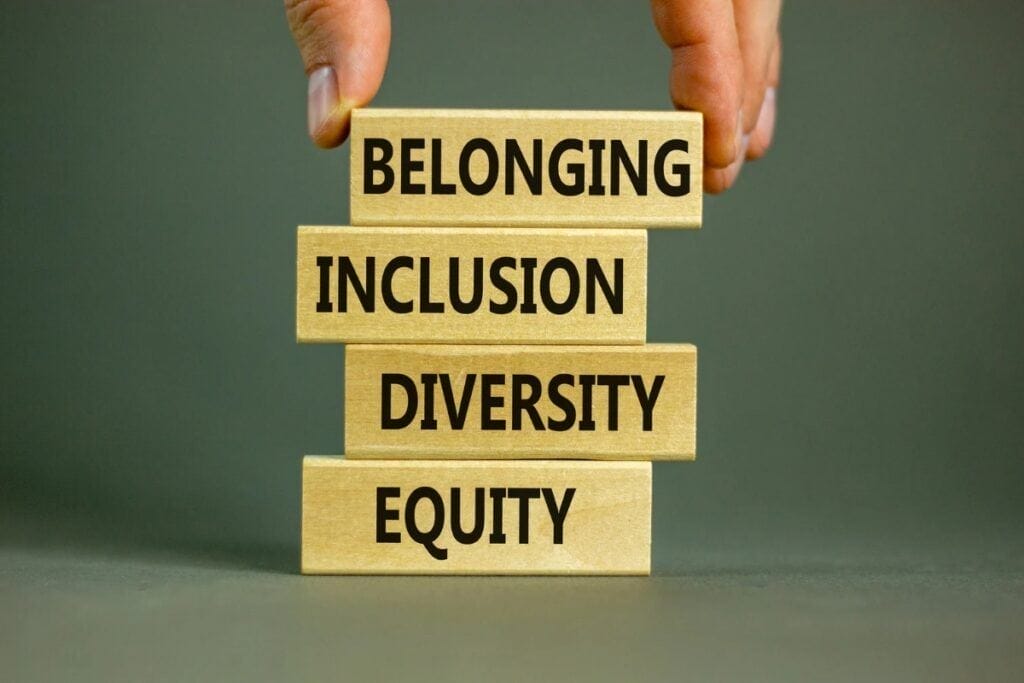Is your inner critic holding you back? Building self-esteem can be a tough climb, but the view from the top is worth it. This post provides 6 practical activities to help you silence the negativity, boost your confidence, and start feeling amazing about who you truly are. Ready to cultivate a healthy sense of self-worth and live your best life?
Introduction To Self-Esteem And Its Importance
I often meet people who underestimate how their self-esteem shapes their experiences. Through my journey, I’ve seen just how much it influences thoughts, behaviors, and everyday decisions. Self-esteem isn’t just about feeling good about yourself – it’s the very foundation of your psychological well-being.
Understanding The Connection Between Self-Esteem And Mental Health
Consider self-esteem as your mental backbone. It’s what helps you stand tall through life’s challenges. And without it, even the smallest setbacks can feel hopeless. That feeling of self-assuredness you carry shapes your resilience, your relationships, and your ability to pursue your dreams with confidence.
High self-esteem doesn’t mean arrogance; it’s about acknowledging your worth, your capabilities, and having a healthy perception of yourself. It’s rooted in reality, recognizing both your strengths and areas for growth. This balanced self-view is crucial for mental health, influencing not just happiness but also your interactions with others.
Highlighting The Benefits Of Building Strong Self-Esteem
By strengthening this fundamental aspect of your psyche, you prepare yourself to face the world with poise and determination.

And because our self-esteem isn’t fixed, with intentional effort and the right activities, you CAN enhance it, leading to an improved quality of life.
Recognizing Negative Self Talk and Its Effects On Self-Esteem
It’s crucial to notice when you’re caught in a cycle of negative self talk. This internal dialogue can convince you of untruths about your abilities, worth, and potential. Understanding these patterns is the first step in changing them. Negative self talk doesn’t just harm our self esteem; it can become a self-fulfilling prophecy. Dwelling on critical thoughts can limit your willingness to pursue new opportunities or take risks that are key for growth.
Self-awareness plays a pivotal role here. It’s about catching yourself in the act of self-doubt and rerouting your thoughts.

Learn to challenge and reframe these thoughts with evidence that proves them wrong. As you begin to take control of your internal monologue, you set the stage for self-compassion. In the upcoming section, I’ll guide you on how to replace self-criticism with kindness and cut yourself some slack, just as you would for a good friend.
Practicing Self-Compassion: Being Kind to Yourself
I’ve noticed a critical piece in the journey to improve self-esteem—it’s the practice of self-compassion. This isn’t about inflating one’s ego. It’s about acknowledging one’s worth and treating oneself with the same kindness and understanding that one would offer a good friend.
Self-Compassion Vs. Self-Esteem: Understanding The Difference
Self-compassion has a distinct role separate from self-esteem. While self-esteem focuses on your sense of self-worth, self-compassion encourages you to be gentler with yourself when you face setbacks.
Techniques For Practicing Self-Compassion
Dr. Kristin Neff, a leading expert on self-compassion, has identified key components that are essential to practicing self-compassion: self-kindness, common humanity, and mindfulness.
Self-kindness involves replacing self-criticism with a more nurturing and forgiving voice. I consider it an internal dialogue revamp, where you’re encouraged to speak to yourself with care and concern rather than harsh judgment.
Recognizing our common humanity allows you to understand that making mistakes and experiencing struggles are universal aspects of the human experience.

Self-compassion through human rights
This dispels the loneliness that often comes with failure, reminding you that you’re not alone in your challenges.
Mindfulness, the third component, invites you to be present with your feelings without over-identifying with them. It’s about creating a balanced approach to your emotions, seeing your experiences objectively rather than getting lost in the storyline of your setbacks.
Long-Term Benefits Of Self-Compassion On Self-Esteem
Including self-compassion into daily life can start small. It might be a pause to acknowledge your feelings rather than rushing past them, or it could be a conscious decision to forgive yourself for a mistake. Gradually, these moments build a foundation for enduring self-esteem.
With this foundation of self-compassion in place, you’re better equipped to embrace the practice of positive affirmations. It’s like constructing a building where self-compassion provides the sturdy base, and affirmations add the intricate features that enhance its overall strength and aesthetic. That’s what we’ll explore in the next section: using affirmations to construct a positive self-image, an important dimension of nourishing and sustaining self-esteem.
The Role of Positive Affirmations
I realize the importance of kind inner dialogue, and I’m not alone. Research shows positive affirmations can significantly enhance self-esteem when practiced consistently. Simply put, affirmations are positive statements about yourself or your circumstances that can reprogram the mind towards a more positive self-view.
Creating Personalized Affirmations
To make affirmations work for you, it’s vital to craft statements that resonate with your personal values and goals. Statements like ‘I am capable and strong,’ or ‘I am worthy of respect and love’ can be powerful motivators. Crafting a personal affirmation involves reflecting on your qualities and aspirations, then framing them in the present tense as current, true statements.
The Science Behind Affirmations And Their Effectiveness
You might wonder if there’s any science to back up affirmations. Indeed, there is. Studies indicate that affirmations can activate neural pathways associated with self-related processing and positive valuation, strengthening one’s self-image. Over time, with repetition, these pathways become more defined, making the positive affirmations a natural part of your thought process.
Now, as effective as affirmations can be, they require a certain level of belief. If an affirmation feels too far-fetched, it can induce skepticism. So, adjust accordingly—choose affirmations that feel attainable and reflect genuine potential.

Understanding how to employ affirmations prepares you for the next logical step: setting goals. Affirmations can make aspirations feel within reach, creating mental conditions that favor success. We’ll explore how to set realistic goals that align with your affirmations in the next section.
Setting Realistic Goals: A Step Toward Confidence
Setting goals is like setting the sails on a ship, guiding you where you want to go.

And when it comes to self-esteem, this direction can mean the difference between feeling adrift and powering through to a confident shoreline.
I see goal setting as a central building block for self-esteem. It isn’t just about reaching the summit; it’s about defining the track, acknowledging progress, and staying motivated. Having clear, realistic goals keeps you focused and gives you benchmarks to celebrate along the journey.
Establishing Achievable And Measureable Goals
When you establish achievable and measurable goals, you introduce structure into your life. These goals, whether small daily tasks or larger long-term objectives, should align with your values and reflect what you truly desire to achieve.
Now, let’s talk numbers and timelines. This part is crucial because vague goals are like clouds – they drift away. Instead, make your goals SMART: Specific, Measurable, Achievable, Relevant, and Time-bound. This framework not only sharpens your focus but also makes the outcome more tangible.
Celebrating Small Victories To Nurture Positive Feelings
Remember, it’s not simply about ticking boxes; it’s about what those ticks represent. Each goal you achieve is a solid proof of your ability, which reaffirms your self worth. Celebrate these victories – no matter how small – because they fuel your journey toward greater self-esteem.

As you consistently meet these smaller goals, you’ll notice a transformative effect: a growing confidence. It’s this positive feedback loop of setting, pursuing, and achieving goals that fortifies your self-belief and propels you onto the next stage – engaging in physical wellness to further elevate your self-esteem.
Engaging in Physical Wellness
When you consider improving your self esteem, physical wellness might not be the first thing that comes to mind. However, it’s been proven time and again that there is a strong connection between the state of the body and the state of the mind.
The Link Between Physical Activity And Self-Esteem
Physical activity can act as a powerful tool in improving how you perceive yourself. Firstly, regular exercise releases endorphins, often known as the ‘feel-good’ hormones, which can improve mood and reduce feelings of anxiety and depression. This biochemical change is a key player in fostering a sense of accomplishment and elevating self esteem.
Incorporating Physical Health As A Component Of Self-Respect
Physical wellness goes beyond exercise, encompassing rest, diet, and personal care. A balanced diet nourishes the brain as well as the body, and adequate sleep is crucial for mental clarity. When you pay attention to these areas, you tend to feel better about yourself. It’s not just about appearance; it’s about feeling strong, capable, and healthy.
Finding An Activity That Boosts Both Physical And Mental Well-Being
Start small. Find a physical activity you enjoy, be it walking, yoga, or dancing, and make it a regular part of your schedule.

Aim for consistency, not intensity. Over time, this consistency builds resilience and positively influences your self-image. As you grow accustomed to prioritizing your physical health, there is a spillover effect. You start to respect yourself more, which can lead to healthier boundaries and better self-care in other areas of your life.
Building Social Connections For Reinforced Self-Worth
Healthy relationships serve as mirrors reflecting back your strengths and positive qualities. Through genuine acceptance, encouragement, and validation from others, you develop a more positive self-image. Witnessing your positive impact on others boosts confidence and reinforces your sense of belonging. Conversely, unhealthy relationships filled with criticism, negativity, or manipulation can chip away at self-esteem.
The Influence Of Social Support On Self-Esteem
Social support acts as a buffer against life’s challenges. And knowing you have people who care for you provides a sense of security and fosters resilience.

Feeling understood and accepted boosts self-worth, while isolation can intensify negative self-perceptions. These positive social interactions activate reward centers in the brain, releasing feel-good chemicals that elevate mood and self-esteem.
Tips For Fostering Meaningful Interactions And Community Involvement
To cultivate meaningful interactions and community involvement, prioritize quality over quantity by investing in deep meaningful connections. Actively listen, offer support, and step outside your comfort zone to meet new people through workshops, events, or volunteering. Kindness plays a key role here. Remember, authenticity shines brighter than perfection, so embrace your flaws and focus on building genuine relationships that boost both your self-esteem and the sense of belonging you’ll find within your community.
Conclusion: Integrating Activities into Everyday Life
I’ve shared with you several approaches to boost self-esteem through targeted activities. Each of these has the potential to contribute to your sense of self-worth and fulfillment. But knowledge alone isn’t enough. It’s ACTION that truly makes the difference. Remember, building self-esteem is a dynamic journey, not a destination you arrive at overnight. The key is consistency. Make these activities part of your routine, and treat them as you would any other important commitment in your life.
Key takeaways:
Affirmations, goal setting, physical wellness, positive self-talk, and social connections are more than just tasks on a to-do list; they’re habits that lay the foundation for a strong and resilient self-esteem. As you go forward, keep a journal or a record of your progress. Celebrate your successes, no matter how small, and be patient with yourself when things don’t go as planned.
Remember, every day presents a new opportunity for growth and self-improvement.

I’m confident that with persistence and the right mindset, you can see a real improvement in how you view yourself. If one method doesn’t suit you, don’t be afraid to try another. Self-esteem building is a personal process, and what works for one person might not work for another. Trust in your ability to find the strategies that fit you best.
I invite you to share your experiences and successes in the comments below. Hearing about your journey can inspire others and provide real-life examples of these strategies in action. This isn’t just my journey or your journey—it’s OUR journey. Let’s support each other in building a life filled with confidence and self-respect.

